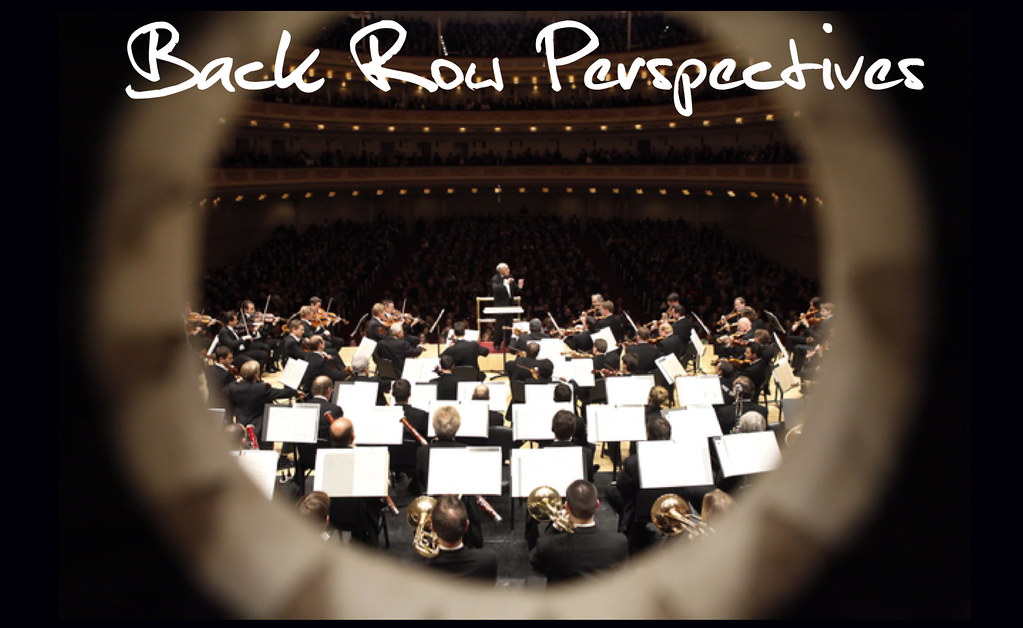This past Easter weekend I played in a run of Wagner's
Parsifal in the State Opera. It's traditionally scheduled around Easter because the storyline of the gargantuan work centers around the quest for Christian relics, plus the final act takes place on Good Friday. Wagner was very interested in these kinds of things... holy grails, spears, templar knights, etc. It was one of several things the
Nazis found so admirable in him. And after performing this opera three times in one weekend, I found myself getting quite annoyed at the curious over-the-top blend of German epic poetry and faux religiosity.
Don't get me wrong, the music is beautiful. But absorbing hour after hour of magic evil castles, curses, holy grail ceremonies, and perpetual wounds interspersed with references to the healing power of a spear (rather than the
One actually
pierced by the spear), it was enough to make me a bit nauseous.
Apparently I wasn't the only one...
The end of the first act of
Parsifal is a point of contention for many an opera scholar, but it has nothing to do with the music, the text, or the staging. It has to do with what happens
after the music stops. The act ends with Parsifal observing a lengthy grail ceremony. The atmosphere becomes very reserved, pious, and even worshipful. In fact, in our production the knights all take Communion on stage. In order to preserve this "holy" feeling, the tradition that arose at Wagner's own
Bayreuth Festspielhaus was for there to be no applause following the first act. The orchestra simply finishes the last note, the lights come up, and the audience heads to the restroom or bar or wherever they go.
I have a couple problems with this.
First, although the folks at Bayreuth would swear on their lederhosen that Wagner wanted it that way, I've always heard that it was a misunderstanding. I always thought that Wagner wanted there to be no curtain calls after the first act, not a complete ban on applause. I've even heard a story that Wagner himself once shouted 'Bravo!' during a Parsifal, only to be shushed and hissed at by the audience.
But even if one assumes Wagner indeed wanted complete silence, the fact that there is some debate on this issue means that at some point someone will applaud after the first act. Some folks aren't aware of the tradition; other folks don't agree with the tradition; some folks just forget. Of the 10 performances of Parsifal I've played, someone has applauded in 8 of them.
So, what happens when someone applauds? The other audience members just sit idly by? To each his own? We're in Vienna, my dear reader. Not a chance.
The usual response to even ONE clap from ONE wayward soul: THREE HUNDRED people very loudly go "SHHHHHHHH!!!!!!!" Which of course preserves the holiness and reverence of the moment much better than some applause...
My point is that if no one applauds... great. Fine. It's quiet and the Wagner fans feel really awesome. But, if someone does applaud, the shushing and calls of, "Ruhe!" (Quiet!) disturb the mood just as much. If someone claps, the damage is done! You can't un-clap a clap!
So, to the 'high drama' part. The first performance last month went fine. No applause after the first act. But then came the second performance, on Easter Sunday. As the final chord of the first act faded into silence, a gentleman in one of the boxes high up to the left side of the stage began to applaud very loudly. Of course the audience reacted as always and began to shush him. But he just kept going. He kept on clapping with all his might, and so the other people began to escalate their reprimands. Instead of shushing, it became hissing, which turned into booing, which turned into... yes... shouting.
Finally, the conductor, Ingo Metzmacher, looked up towards the source of the applause while gesturing with his arm and shaking his head. The man finally stopped applauding, but then shouted his message to the audience...
"I find this holiness totally misplaced! It's what led to the rise of National Socialism!"
The orchestra all sat there, mouths agape, myself included. I've heard boos, hisses, and insults of all kinds hurtled at the stage. But NEVER have I heard someone yelling at the audience!! It was truly an unbelievable moment. The man (who I like to call Screamy McShouterson) had obviously planned an ambush. He was perfectly positioned to be heard by everyone, and the delivery of his message sounded rehearsed.
As the conductor left the pit, the audience and orchestra were both murmuring in shocked amazement at what had just happened. What did he say, again? Did you hear? Who was that? What's he on?
I would like to say at this point that although I sort of agree with Screamy, I don't think what he did was right. Again, to each his own. If I think the non-clappers should leave him alone, then it's only fair that Mr. McShouterson leave the non-clappers alone.
Screamy then made me think even less of him when he decided to punish the conductor for his rebuke. When Metzmacher came into the pit for the second and third acts, Screamy loudly and passionately booed. And he kept on booing until the rest of the audience drowned him out with supportive applause.
What a crazy night!
